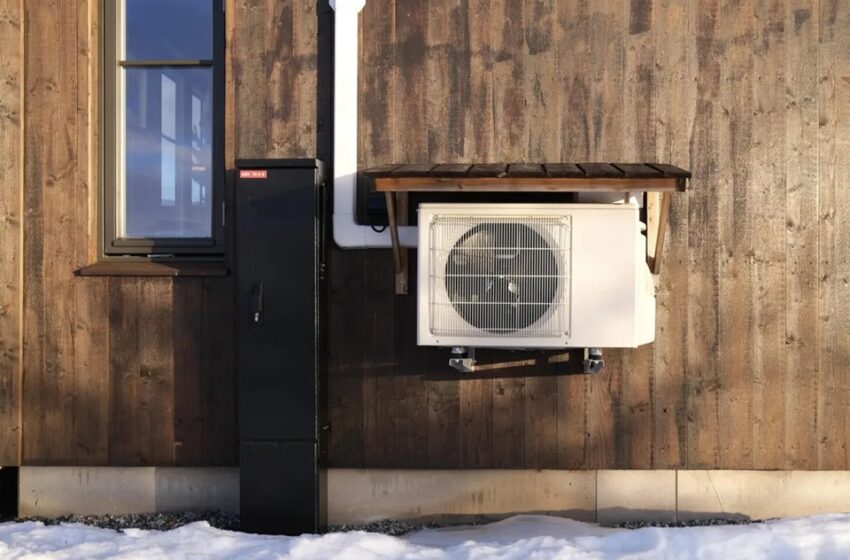Choosing The Right HVAC System: A Comprehensive Guide

Key Takeaways:
- Climate, home size, and energy efficiency are crucial in selecting an HVAC system.
- Understanding HVAC types saves money and boosts home comfort.
- Modern HVAC technology offers eco-friendly solutions.
Getting Started With HVAC Systems
Choosing the right HVAC system is essential for any homeowner, greatly impacting comfort and energy efficiency. Today’s HVAC systems are designed to maintain optimal indoor temperatures, improve air quality, and create a comfortable living environment. They are more than just a convenience; they are a necessity that can substantially influence your home’s atmosphere and financial outlay regarding utility bills.
Whether upgrading an old system or installing a new one, understanding the different types of HVAC systems and the latest technological advancements can be immensely beneficial. A thorough understanding ensures that you select a system that fits your needs and allows you to take advantage of potential savings on energy costs over time. This comprehensive guide aims to assist homeowners in navigating these choices by providing valuable insights into the available options and their benefits.
Types Of HVAC Systems
HVAC systems come in various types, each tailored to meet specific residential needs. Central air conditioning systems have long been popular, especially for larger homes, due to their ability to regulate temperature uniformly through a network of ducts. However, the associated ductwork can lead to energy loss if not insulated properly, affecting efficiency over time.
Another popular option is heat pumps, known for their versatility in heating and cooling by transferring heat instead of generating it. This capability offers significant efficiency benefits, particularly in moderate climates. Ductless systems provide flexibility in installations where traditional ductwork might not be feasible. This makes them a cost-efficient choice for homes with precise zoning and control over individual room temperatures.
Factors To Consider In HVAC Selection
- Climate and Weather Patterns: Understanding local climate conditions is essential, as systems efficient in one zone may not be suitable for another. Selecting a system that adapts well to temperature variations can enhance comfort and efficiency.
- Home Size and Layout: Your home’s architectural design and size significantly influence your HVAC choice. Larger homes require systems with greater capacity, whereas more compact or open-plan designs can benefit from smaller, efficient setups.
- Indoor Air Quality Needs: Homes prioritizing air quality often opt for systems featuring advanced filtration options to effectively manage allergens, pollutants, and moisture control.
- Energy Efficiency Ratings: Consider systems with high SEER (Seasonal Energy Efficiency Ratio) and AFUE (Annual Fuel Utilization Efficiency) ratings, highlighting systems that balance cost with efficient energy use and environmental impact.
Energy Efficiency & Environmental Impact
Energy-efficient HVAC systems are crucial in reducing utility bills and supporting environmental efforts. High-SEER-rated systems are designed to operate efficiently, ensuring minimal energy consumption without sacrificing performance. These systems employ advanced technologies, such as inverter-driven compressors, to maintain efficiency by adjusting operating speeds to match load demands.
Moreover, eco-friendly refrigerants greatly diminish HVAC operations’ ecological footprint. These advances make energy-efficient HVAC systems not just a choice but an essential component in sustainable household solutions, aligning with global green energy endeavors.
Recent Advancements In HVAC Technology
The HVAC industry has experienced significant technological advancements in recent years, driven by the increasing need for smarter, more energy-efficient systems. Technologies like smart thermostats have risen in popularity, offering features allowing users to control and adjust settings based on personalized preferences remotely. These tools help homeowners optimize energy consumption and reduce costs further.
Introducing eco-friendly materials and components has also transformed traditional HVAC systems into more sustainable solutions. These innovations have decreased the systems’ greenhouse gas emissions and set a precedent for environmental responsibility, making modern HVAC solutions more attractive and beneficial in creating healthier, more comfortable environments.
Maintenance & Longevity Tips
Regular maintenance is essential for HVAC systems to operate at their best and last longer. Routine tasks, such as changing filters, ensuring clean and unblocked ducts, and scheduling professional inspections, can significantly enhance a system’s performance.
Understanding your system’s basic operational features is also advantageous. It helps identify potential issues early and prevents unexpected repairs. Proactive maintenance is key to achieving cost savings and maintaining dependable system performance throughout the year.
Frequently Asked Questions
- What is the lifespan of a typical HVAC system? Typically, HVAC systems last between 15-20 years, though this depends on the level of maintenance and frequency of use.
- How can I improve my HVAC system’s efficiency? System efficiency can be enhanced through regular maintenance, optimizing thermostat settings, and ensuring air ducts are correctly sealed and insulated.
- When is the best time to replace my HVAC system? Replacing is often recommended when the systems frequently need repairs or are over 15 years old and less efficient than newer models available.